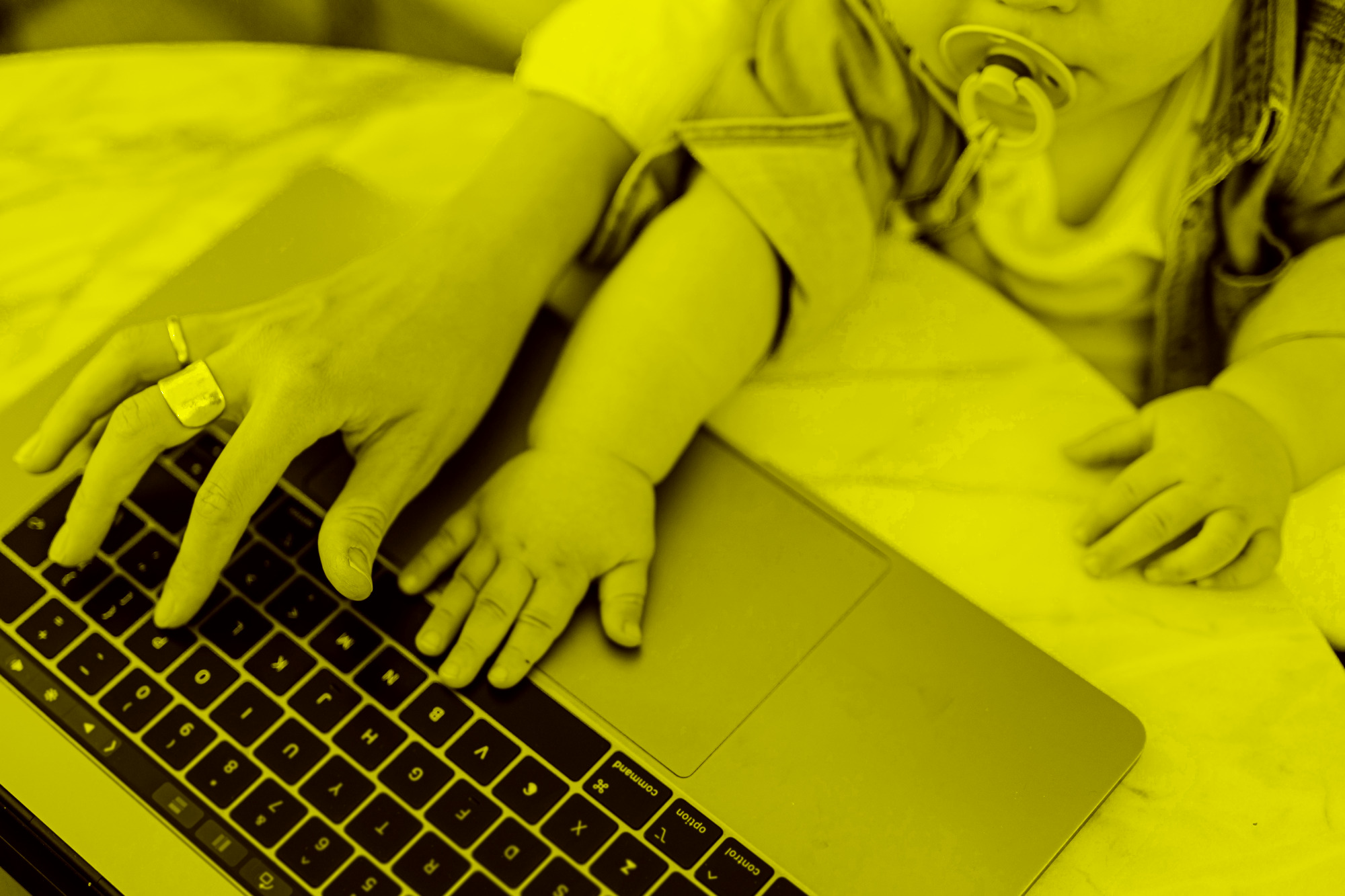Mothers frequently find themselves balancing family duties with work obligations, caught between deep-seated cultural expectations of motherhood and the rigorous demands of professional life. As they consider parental leave, how do they navigate these dual pressures? A recent study provides insights into the lived experiences and challenges of South Korean college-educated women. South Korea is known for its intense overwork culture where hours are long, the boundaries between office and home often vanish, and the office environment is rife with competition. Drawing on interviews with 64 mothers, this study busts the myth that mothers sideline their careers upon returning from their parental leave. Instead, these new mothers intensify their work commitments, trying to outcompete their prior productivity levels as well as their peers’. This puts them at risk of burning out, especially if they do not have a supportive family network.
Before conducting this research, researchers Eunsil Oh and Eunmi Mun were intrigued by a puzzling pattern. Despite the South Korean government’s parental leave reforms—including a 90-day fully-paid maternity leave and an additional year with partial pay for childcare—there has not been a change in the alarming rate at which new mothers were leaving the workforce. More startling is the fact that several soon-to-be mothers are forgoing these benefits, choosing instead to leave the companies outright. Over one-fifth of mothers do not stay past a year upon returning. Oh noted this peculiar situation, saying, “You are on leave but you are an employee […], torn between two competing devotions to work and family in this vacuum period.”
Mun, meanwhile, had been exploring the complexities of parental leave policies. One of her previous studies highlighted the ambivalence of HR managers towards mothers in the East Asian context.1 While they touted the potential of these policies to attract and retain women employees, they implicitly expected new mothers to seamlessly return to the office post-leave, maintaining their pre-leave work ethos and efficiency. Mun reflects, “I never had the chance to listen to women’s voices about these perceptions.” She adds, “We [researchers] actually do not know how women think about parental leave, if they can manage it? If so, how do they manage it?”
When setting the duration of their leave, career and team considerations take precedence over their personal needs.
Oh’s fieldwork in South Korea helped provide this missing piece: the two researchers incorporated a question about mothers’ parental leave experiences in her study. Responses were overwhelming, with 64 mothers sharing extensively on their experiences. From the interviews, it is clear that mothers are acutely conscious of these unspoken expectations from their peers and managers. They strategically approach parental leave, opting for this benefit only if they plan to return to their career. When setting the duration of their leave, career and team considerations take precedence over their personal needs. Even when off-duty, the mothers interviewed never detached from their professional commitments. They would recalibrate the duration of their leave, paying attention to signals from their team about workload and urgency.
Upon their return, these new mothers experience a deep sense of obligation to their employers for “granting” them a parental leave. This prompts them to go above and beyond in their roles, a phenomenon Oh and Mun refer to as “compensatory work devotion.” These mothers attempt to work harder and longer than they did before their leave and compared to their “childless” peers. Yet, achieving this without family support is nearly insurmountable. In South Korea, it is widely believed that children under the age of three should be under family care and, more specifically, mothers’ and grandmothers’ care. Some mothers interviewed decided to quit their careers because they could not provide this compensatory work devotion while being a mom.
These mothers attempt to work harder and longer than they did before their leave and compared to their “childless” peers. Yet, achieving this without family support is nearly insurmountable.
When discussing recommendations for policymakers, the researchers stress the importance of reconsidering existing workplace norms and, if needed, pushing against these norms, by, for example, curbing work hours and overtime. South Korea started a 52-hour workweek in 2018, yet this is only a beginning, as such measures remain a topic of debate.2 Mun, weighing on the broader societal implications, notes that “these new policies [parental leave] are not simply pushing organizations or individuals to provide certain benefits, but they are sending a message of where the society needs to be headed.”
Organizations can also take an active role in helping mothers reintegrate their position after a leave. Encouraging findings come from firms that tailor task distribution and allocate teams in ways that allow mothers to re-enter without having to prove their place. For effective policy design that champions women in the workforce, reconsidering workplace norms and the nature of work is crucial — a sentiment Oh encapsulates as treating them as a “package deal,” where policies promoting gender equality need to go hand in hand with labor market policies.
References
[1] Brinton, M.C. and Mun, E. Between state and family: managers’ implementation and evaluation of parental leave policies in Japan, Socio-Economic Review, Volume 14, Issue 2, April 2016, Pages 257–281, https://doi.org/10.1093/ser/mwv021
[2] McCurry, J. (2023, March 15). South Korea U-turns on 69-hour working week after youth backlash. The Guardian. https://www.theguardian.com/world/2023/mar/15/south-korea-u-turns-on-69-hour-working-week-after-youth-backlash
______
Research brief prepared by:
Title
Compensatory Work Devotion: How a Culture of Overwork Shapes Women’s Parental Leave in South Korea
Author
Eunsil Oh, Eunmi Mun
Source
Gender & Society
Published
2022
DOI
10.1177/089124322211021
Link
https://doi.org/10.1177/089124322211021







